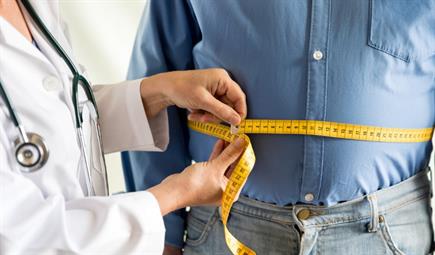Our Doctors
Meet all the doctors from Cleveland Clinic Abu Dhabi.
View Doctors
The Sunshine Vitamin: Could you be vitamin D deficient?

Vitamin D is a very important part of your diet. It helps regulate the amount of calcium and phosphate in the body, which are required for healthy bones and teeth.
You get most of your vitamin D from sunlight on your skin, which is then able to produce vitamin D itself, however, you can also get smaller amounts of vitamin D from oily fish, eggs, and other food items. Check the labels; many spreads, breakfast cereals, and milks are fortified with nutrients such as vitamin D.
If your vitamin D levels get too low, it can cause your bones to become thin, brittle or misshapen. There are various bone conditions associated with vitamin D deficiency including rickets, osteomalacia and osteoporosis.
Recent research is revealing the important roles vitamin D plays in other bodily functions too. Some observational studies have associated low blood levels of vitamin D with:
Ongoing trials aim to determine whether vitamin D supplementation will have a beneficial effect on such conditions. If you have any questions about your vitamin D intake, please consult with your physician.
Not having enough vitamin D can lead to health problems. Vitamin D regulates calcium levels, which is very important for strong bones and teeth.
You may be at higher risk of vitamin D deficiency if:
Spending 15 to 30 minutes outside with your skin exposed to sunlight, just two or three times a week is enough to produce the essential amount of vitamin D to keep your body levels at an optimum. Try to get outdoors more often and spend some time under the sun. Remember to keep hydrated when outdoors and to protect your eyes from sun exposure.
If you plan to be outdoors for extended periods though, always wear sun protection to reduce the risk of skin cancer.
If you find it difficult to get regular sun exposure, you can get small amounts of vitamin D from oily fish such as trout, smoked salmon, swordfish, salmon, mackerel, and halibut. You can also get vitamin D from Portobello mushrooms, fortified cereals, tofu, caviar, dairy products, eggs, soy yoghurt and soymilk. You can also take vitamin D supplements or cod liver oil.

During the Holy month of Ramadan, adult muslims practice daily fasting from dawn until sunset. Make...
Read Articles
Healthy habits during the holy month are also very important in order to avoid gaining weight. We...
Read Articles
Bariatric surgery, or weight loss surgery can help obese people to lose significant amounts of...
Read Articles
Some of the most important factors contributing to the development of heart disease are lifestyle...
Read Articles